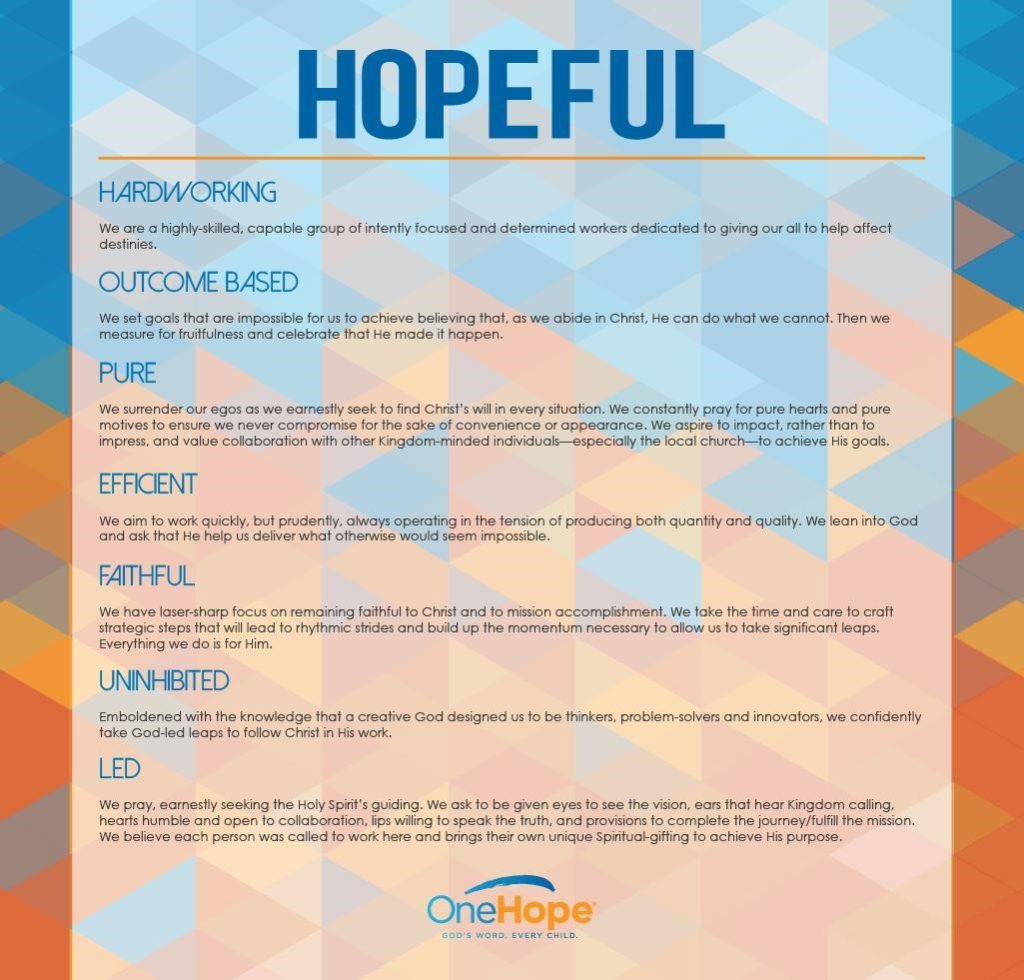Once your organization has been “steady” or has experienced growth and momentum in any area, it’s time to mature and grow into the next iteration of becoming who God wants you to be.
It’s the job of the leaders to work together to co-create the next evolution of the organization’s culture. Bob Goff asks himself, “What does the next best version of myself look like?” He then challenges himself to become that guy.
The only things that evolve by themselves in an organization are disorder, friction, malperformance. Peter Drucker
While from the outside much appears to remain the same, there must be internal changes – shifts in how we think and act.
The challenges of this next step often include cultivating the nuances of this new culture in our teams and gently weaving it throughout the organization.
Generally, this requires us to establish a ‘doctrine,’ of sorts, to work from – not only for the benefit of external stakeholders, but also for clarity and execution of the brand internally.
Gallup polls indicate that 41% of workers strongly agree with the statement, “I know what my company stands for and what makes [us] different from our competitors.” Yet only about half of all employees know what’s expected of them at work.1
One of my primary responsibilities as a leader at OneHope is to build the right culture for the context we live in. Our most recent 360 evaluation, completed by an outside firm, revealed that over 98% of OneHope staff could clearly articulate our mission and vision. However, it has to go beyond that. We are extremely intentional about living out our values:
Our ‘HOPEFUL’ DNA is more than a list of aspirational slogans. It is a doctrine we live by and the yardstick we use to measure ourselves against in our ministry objective.
Billy Graham embodied this principle when he and his closest circle set down principles of integrity that were to be the hallmark of their lives and ministries. (This later became known as the Modesto Manifesto2.)
The first step to reaching this next level is simply beginning to live out the new culture you want to see.
[Tweet “It’s the job of the leaders to create the next iteration of the organization’s culture.”]
In the long run, this growth spurt may require you assess and adjust your core values. However, that process can be entered into only with the utmost care and attention. Most important is evaluating ourselves and our core values to ensure that in all we say and do, we are exemplifying who God has made us and called us to be.
“I can’t go back to yesterday because I was a different person then.” ― Lewis Carroll, Alice in Wonderland
Let every detail in your lives – words, actions, whatever – be done in the name of the Master, Jesus. Col 3:17 (MSG)





